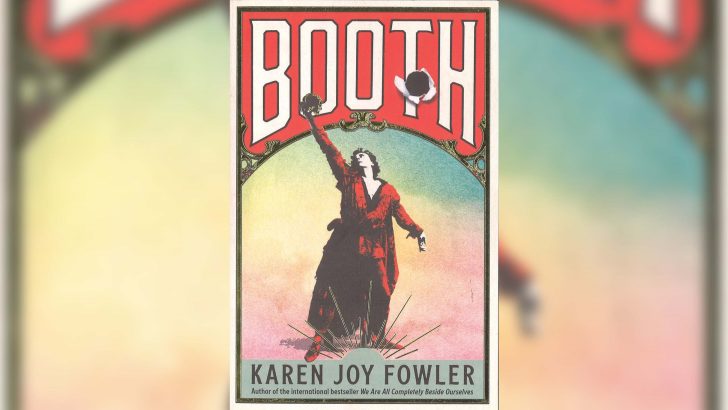Booth by Karen Joy Fowler (Serpent’s Tail, £14.99)
Booth, by the American author Karen Joy Fowler, is a novel about the family of actor Junius Brutus Booth. The most famous – or infamous – of his children was John Wilkes Booth, the assassin of Abraham Lincoln.
Booth père (1796-1852) was an Englishman who abandoned a wife and child, and eloped to America with a beautiful young girl who sold flowers in Drury Lane in London where he had been performing. They had a total of 10 children, of whom two girls and four boys survived into adulthood. Three of their sons – Junius junior, Edwin and John Wilkes – became actors. Edwin (1833-93), the most talented of the three, was a notable exponent of Shakespeare’s plays – as his father too had been.
Charismatic
John Wilkes Booth was five years younger than Edwin, and Fowler portrays him as the most adventurous and charismatic of the siblings. He grew up in Maryland, a slave state which, however, did not join the Confederacy in the 1860s. His family was sympathetic to abolitionism, but he did not share that sentiment. In a letter he left with one of his sisters to be read after his death (and quoted by Fowler), he stated that slavery “is one of the greatest blessings, both for themselves [that is, the slaves] and for us, that God ever bestowed upon a favoured nation”.
John Wilkes Booth acted as a spy for the Confederacy during the Civil War as he travelled throughout the cities of the North as a journeyman-actor. He also plotted to kidnap Lincoln and exchange him for Confederate prisoners, but this came to nothing. Then, after Lincoln’s re-election in 1864, he resolved to kill him. Lincoln was the first president to be re-elected since Andrew Jackson in 1832, and this led Booth to fantasise that Lincoln would turn the presidency into a monarchy. He regarded Lincoln as a tyrant because, in words Fowler attributes to him, of “the wrongs being done by the North to the South”.
As a well-known actor, Booth had easy access to Ford’s Theatre in Washington when Lincoln attended a performance of Our American Cousin there on April 14th, 1865. The Civil War had just ended, with General Lee’s surrender at Appomattox Court House on April 9.
Booth shot Lincoln at close range in Ford’s Theatre and escaped via the stage, from which he dramatically exclaimed “sic simper tyrannis” – “thus always to tyrants”. This, of course, was Brutus’s cry when he murders Julius Caesar in Shakespeare’s play.
Died
Lincoln died some hours later, and Booth was eventually tracked down to a barn near Bowling Green, Virginia, where he was hiding out, and shot dead as he exited the barn.
Fowler tells us in an afterword to her book that what prompted her to write it was the “spates of horrific mass shootings” in America. She wondered about the families of the shooters: how did they deal with the circumstances in which, through no fault of their own, they found themselves. Regarding the Booth family after Lincoln’s assassination, she asks: “What is it like to love the most hated man in the country?” Her novel is an utterly brilliant attempt to answer that question.



